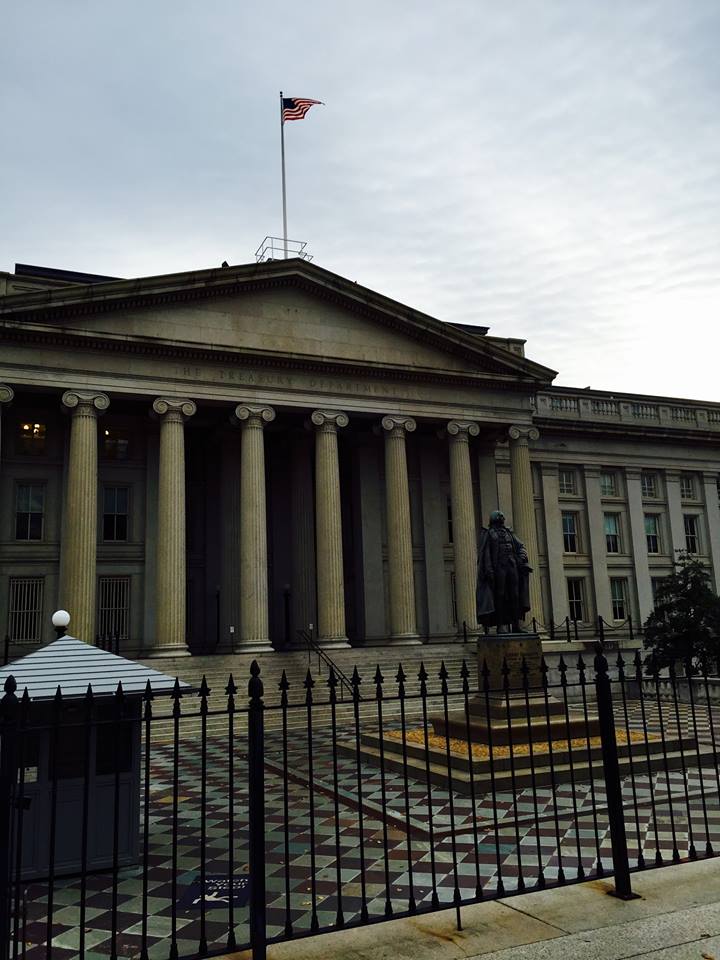The U.S. “will run out of cash to pay all the government’s bills on time” on June 8, according to Mark Zandi, chief economist at Moody’s Analytics.
“First, by my calculation, the ‘x’ date, the day in which the Treasury will run out of cash to pay all the government’s bills on time, will be June the 8th,” Zandi said in remarks before the Senate Budget Committee during a hearing titled “The Default on America Act: Blackmail, Brinkmanship, and Billionaire Backroom Deals.”
The economist hedged, however, noting that the date is “very uncertain because it depends on very uncertain tax receipts, but it’s very clear that the April tax revenues came in very weakly, about a third of what we took in last year, but don’t quite know … what the revenue numbers are going to look like in coming days, but by my best calculation June 8 will be the day when Treasury can’t pay its bills.”
Zandi added:
There is a possibility, worst-case scenario, that it will be June the 1st. It’ll be very close. A best-case scenario will be Aug. 8. So that gives you a sense of timing here.
Moody's Chief Economist Mark Zandi tells Senate hearing that the government would run out of cash by June 8 unless the debt ceiling is lifted. But says that deadline could come as early as June 1
— Chad Pergram (@ChadPergram) May 4, 2023
Don’t listen to the Administration
EJ Antoni, a research fellow for regional economics in the Center for Data Analysis at The Heritage Foundation, weighed in on Zandi’s remarks. (The Daily Signal is the news outlet of The Heritage Foundation.)
“Zandi is parroting the administration’s rhetoric that running out of cash means an automatic default, which is not the case,” Antoni told The Daily Signal in an emailed statement. “The latest data from the Treasury indicates the X date will arrive much sooner than June 8. The Treasury General Account, which is basically the cash they have on hand, is falling very fast.”
“At this pace, it will be depleted before the end of May. It’s important to note, however, that this does not mean a default. The Treasury has more than enough revenue to pay all of its securities (bonds, notes, and bills) as well as payments for Social Security, Medicare, and veterans’ benefits,” Antoni explained. “The Treasury General Account being depleted just means we will have another partial government shut down, like we have had so many times in the past.”
The U.S. may “potentially” default on its debt “as early as June 1, if Congress does not raise or suspend the debt limit before that time,” Treasury Secretary Janet Yellen said in a letter Monday to House Speaker Kevin McCarthy, R-Calif.
“After reviewing recent federal tax receipts, our best estimate is that we will be unable to continue to satisfy all of the government’s obligations by early June, and potentially as early as June 1, if Congress does not raise or suspend the debt limit before that time,” Yellen said in the letter.
“This estimate is based on currently available data, as federal receipts and outlays are inherently variable, and the actual date that Treasury exhausts extraordinary measures could be a number of weeks later than these estimates,” Yellen said.
In a letter to House Speaker Kevin McCarthy, Treasury Sec. Janet Yellen estimates the United States will default on its debt “by early June, and potentially as early as June 1” if Congress doesn’t raise or suspend the debt ceiling. pic.twitter.com/Aw5dYOUjVP
— The Recount (@therecount) May 1, 2023
The U.S. House of Representatives on April 26 passed the Limit, Save, Grow Act of 2023 as the debt ceiling debate continues in the nation’s capital. Now, the Senate has the opportunity to vote on the bill, which aims to “limit federal spending, save taxpayer dollars,” and “grow the economy.”
The legislation passed 217-215 in the House but did not get a single vote from a Democrat. Given Democrats’ control of the Senate, it is unlikely the bill will pass in its current form. Still, many Senate Republicans are backing it and calling on their Democratic colleagues to do likewise.
President Joe Biden will meet with McCarthy; Senate Minority Leader Mitch McConnell, R-Ky.; House Minority Leader Hakeem Jeffries, D-N.Y.; and Senate Majority Leader Chuck Schumer, D-N.Y., at the White House on May 9 to discuss the debt ceiling, NBC News reported.

